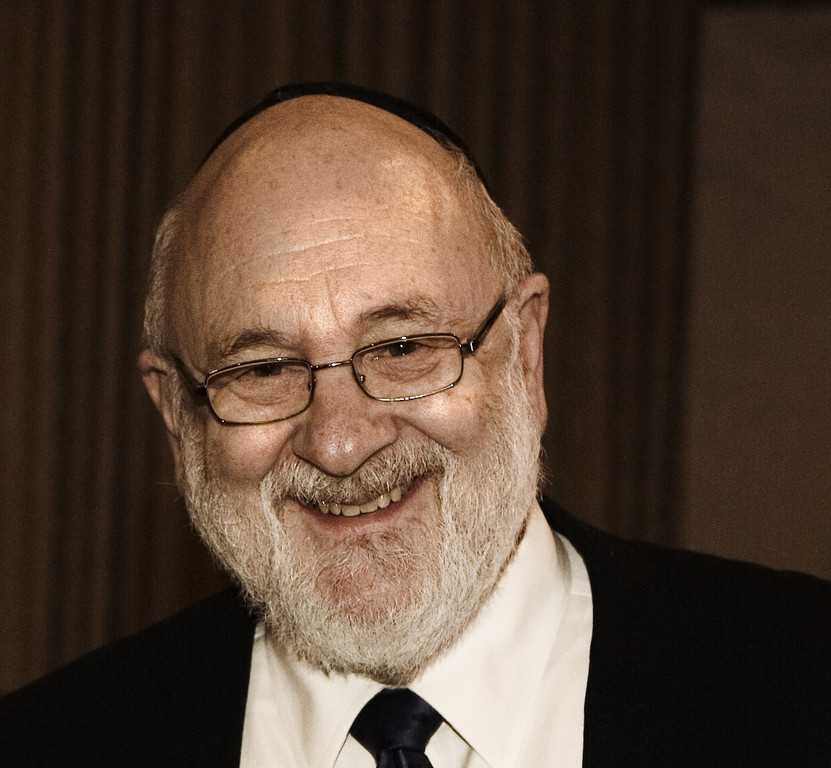Inner strength enabled this rare achievement
I have known more than my share of families torn by discord. Most of us know a family in which brothers and sisters have not spoken to each other in years, sometimes having forgotten the original reason for the destruction of their relationship. My background and experience in the field of family therapy has given me even broader exposure than most to this unfortunate phenomenon.
Colleagues of mine in the practice of psychotherapy will concur that overcoming hatred and vengefulness is one of the most difficult challenges that they face. Reconciling parents and children, husbands and wives, is a frustrating process. The successful repair of ruined relationships is a rare achievement, especially after misunderstandings have festered for years.
The great eighteenth-century moralist, Rabbi Moshe Chaim Luzzato, contends that these difficulties are intrinsic to human nature. Thus he writes:
“Hatred and revenge. These, the human heart, in its perversity, finds it hard to escape. A man is very sensitive to disgrace, and suffers keenly when subjected to it. Revenge is sweeter to him than honey; he can not rest until he has taken his revenge. If, therefore, he has the power to relinquish that to which his nature impels him; if he can forgive; if he will forbear hating anyone who provokes him to hatred; if he will neither exact vengeance when he has the opportunity to do so, nor bear a grudge against anyone; if he can forget and obliterate from his mind a wrong done to him as though it had never been committed; then he is, indeed, strong and mighty. So to act may be a small matter to angels, who have no evil traits, but not to ‘those that dwell in houses of clay, whose foundation is in the dust’ (Iyov 4:19)” (Mesilat Yesharim, Chapter 11).
To overcome the natural human inclinations to hate and take revenge, one must approximate the angels in heaven. How, then, do we explain the astounding reconciliation between Yosef and his brothers, which occurs in this week’s Torah portion, Vayigash?
Yosef’s brothers came to hate him because of what they saw as his malicious arrogance. Yosef certainly had reason to hate his brothers, who cast him into a pit of snakes and scorpions. We can understand that he would attribute his years of imprisonment to their betrayal.
And yet, last week, we learned that they regretted their actions and felt guilty for them. This week, we learn of Yosef’s forgiveness and a dramatic reconciliation — a total triumph over hatred and revenge. What inner strength enabled them to this rare achievement?
I maintain that there were quite a few. One was the brothers’ ability to accept responsibility for their actions. Over time, they reflected and concluded that they were wrong for what they had done. Self-confrontation, and a commitment to accepting truth allowed them to forget whatever originally prompted them to hate Yosef.
The dynamics of Yosef’s ability to forgive were different. He came to forgive his brothers because of two fundamental aspects of his personality: his emotional sensitivity and his religious ideology.
Yosef’s sensitivity becomes apparent to the careful reader. The most reliable indication of a person’s sensitivity is his ability to shed tears of emotion. Yosef demonstrates this capacity no less than four times in the course of the story: when he first meets his brothers, “he turned away and wept,” when he first sees Binyamin, he leaves the room to cry, after Yehuda’s confrontational address he is unable to contain himself, and in response to his brothers’ plea for explicit forgiveness: “he was in tears as they spoke to him.”
But there is another secret to Yosef’s nobility. It relates to his philosophy, not to his emotional reactivity.
If there is one lesson that Yosef learned from Yaakov during his disrupted adolescence, it was the belief in a divine being who ultimately controls man’s circumstances and destiny. When a person has that belief, he can dismiss even the most painful insults against him. He is able to attribute them to G-d’s plan.
Thus was Yosef able to say, “It was not you who sent me here, but G-d.”

 50.0°,
Overcast
50.0°,
Overcast 




